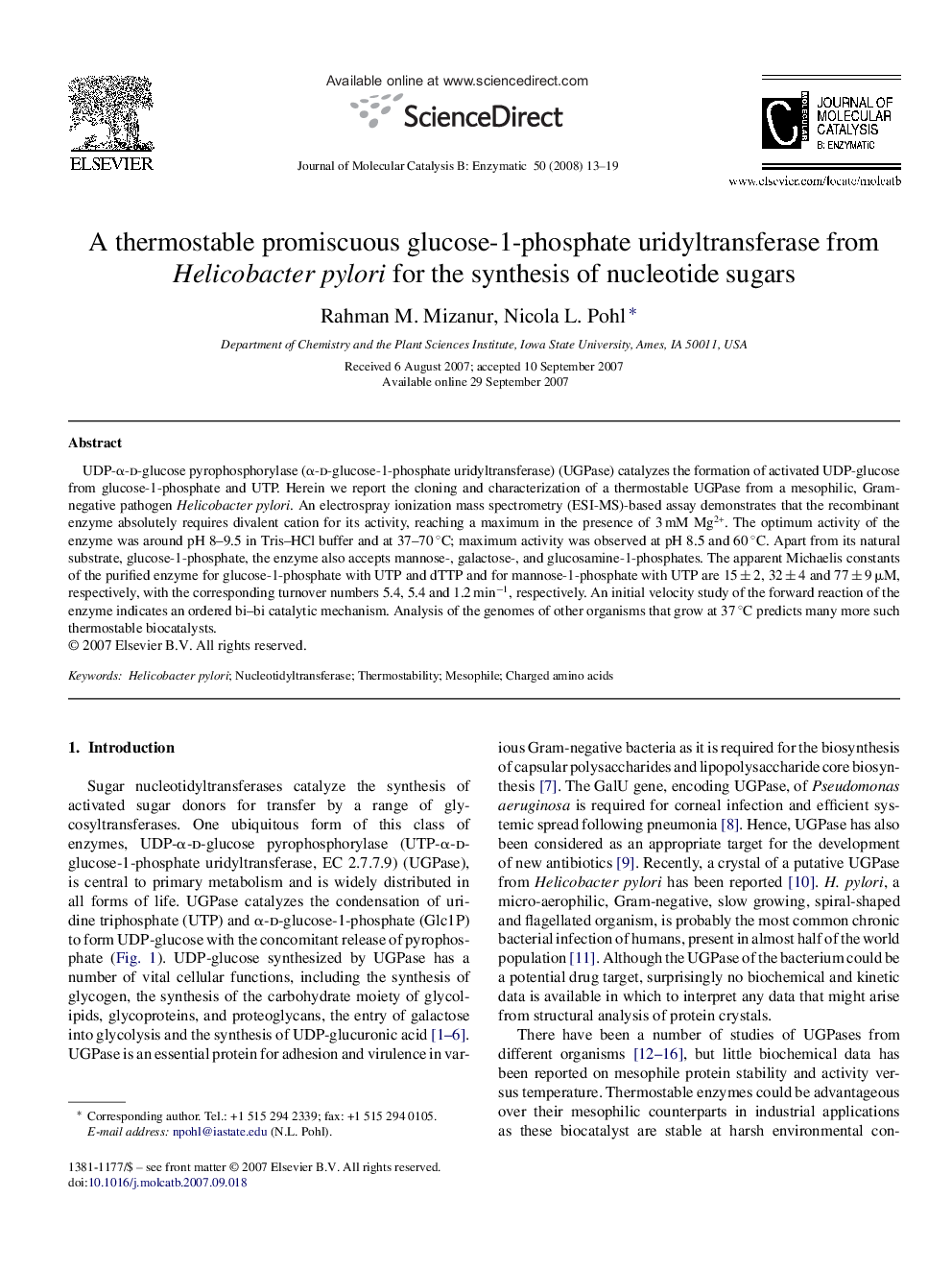| Article ID | Journal | Published Year | Pages | File Type |
|---|---|---|---|---|
| 71059 | Journal of Molecular Catalysis B: Enzymatic | 2008 | 7 Pages |
UDP-α-d-glucose pyrophosphorylase (α-d-glucose-1-phosphate uridyltransferase) (UGPase) catalyzes the formation of activated UDP-glucose from glucose-1-phosphate and UTP. Herein we report the cloning and characterization of a thermostable UGPase from a mesophilic, Gram-negative pathogen Helicobacter pylori. An electrospray ionization mass spectrometry (ESI-MS)-based assay demonstrates that the recombinant enzyme absolutely requires divalent cation for its activity, reaching a maximum in the presence of 3 mM Mg2+. The optimum activity of the enzyme was around pH 8–9.5 in Tris–HCl buffer and at 37–70 °C; maximum activity was observed at pH 8.5 and 60 °C. Apart from its natural substrate, glucose-1-phosphate, the enzyme also accepts mannose-, galactose-, and glucosamine-1-phosphates. The apparent Michaelis constants of the purified enzyme for glucose-1-phosphate with UTP and dTTP and for mannose-1-phosphate with UTP are 15 ± 2, 32 ± 4 and 77 ± 9 μM, respectively, with the corresponding turnover numbers 5.4, 5.4 and 1.2 min−1, respectively. An initial velocity study of the forward reaction of the enzyme indicates an ordered bi–bi catalytic mechanism. Analysis of the genomes of other organisms that grow at 37 °C predicts many more such thermostable biocatalysts.
